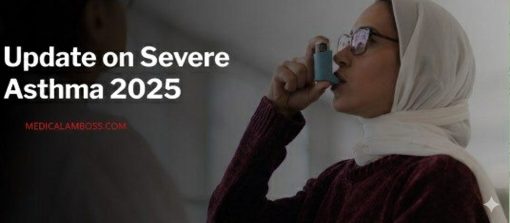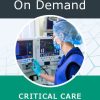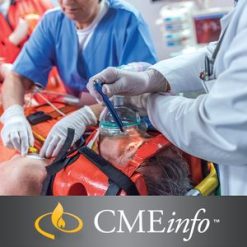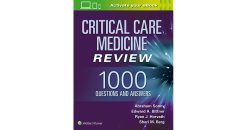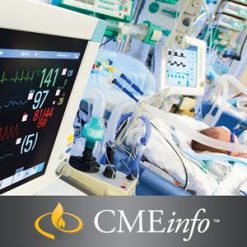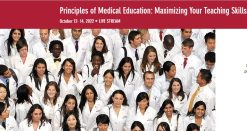Harvard Update on Severe Asthma 2025
$50,00
This Product is shared via google drive download link, So please share your correct Gmail id while placing the order .Please note that there are no CME points or certificate associated with this course Samples for Courses Can be found here : Free Samples Here!
- Include: 29 videos + 30 pdfs, size: 6 GB
Harvard Update on Severe Asthma 2025
Include: 29 videos + 30 pdfs, size: 6 GB
Target Audience: pulmonologists, allergists, primary care physician
Information:
Assessment and management of severe asthma are issues currently at the forefront of modern asthma investigation and care. This two-day, live, hybrid (in person and online) course will provide insights from a multidisciplinary team representing the Severe Asthma Program at Brigham and Women’s Hospital and the Mass General Brigham Asthma Center. Our focus will include both pediatric and adult patients with asthma. We will devote one day to assessment of severe asthma and complicating illnesses and one day to its treatment, including novel approaches to management. Lectures will cover topics in the immunology and genetics of severe asthma, aspirin-exacerbated respiratory disease, eosinophilic lung diseases including allergic bronchopulmonary aspergillosis, occupational asthma, obesity and asthma, and special considerations in school-age children. Presentations on the contribution of gastroesophageal reflux disease, upper airway obstruction, and sinusitis/nasal polyposis will be given by a gastroenterologist, voice specialist, and otolaryngologist, respectively. We will focus on the treatment of asthma, including recent GINA and NAEPP Guidelines, modern biologics, and novel therapies in development. We will review in depth our protocol for the evaluation of severe asthma and have opportunity to discuss interesting cases of severe asthma. This course is appropriate for allergists, pulmonologists, and other specialists with an interest in the management of severe asthma.
Who Should Attend
- Specialty Physicians
- Primary Care Physicians
- Nurse Practitioners
- Physician Assistants
Learning Objectives
Upon completion of this activity, participants will be able to:
- Systematically evaluate difficult-to-control asthma.
- Identify specific severe asthma phenotypes/endotypes.
- Utilize novel asthma therapeutics with confidence.
The Harvard Update on Severe Asthma 2025 course is designed for healthcare professionals specializing in asthma management and respiratory medicine. The target audience includes:
- Pulmonologists and allergists treating severe asthma.
- Primary care physicians managing asthma patients.
- Nurse practitioners and physician assistants working in respiratory care.
- Medical trainees seeking advanced education in asthma treatment.
- Researchers focused on asthma pathophysiology and novel therapies.
This course provides state-of-the-art updates on diagnostic assessment, treatment strategies, and emerging research in severe asthma.
+ Topics:
Program & Updates
-
Welcome & Introduction to the Online Audience
-
Update on Severe Asthma 2025 — Key Changes & Takeaways (PDF)
Disease Biology & Phenotypes
-
Asthma Genetics and the Environment in Severe Asthma
-
Molecular Sub-Phenotypes in Asthma — Guest Lecture
-
Eosinophilic Lung Disease and Its Overlap with Asthma
-
Insights from the Severe Asthma Research Program (SARP)
-
Pathophysiologic Insights from Novel Imaging Techniques
Diagnosis & Assessment
-
Diagnostic Assessment of Severe Asthma — Practical Framework
-
Diagnostic Considerations in Children with Severe Asthma
-
Drivers of Asthma in School-Aged Children
-
Airway Oscillometry in Adults and Very Young Children (Study Hall)
-
New Recommendations for Interpreting Pulmonary Function Tests (PFTs) (Study Hall)
Environment, Triggers & Exposures
-
Indoor Environments and Asthma Exacerbations
-
Occupational Exposures and Severe Asthma (Study Hall)
-
What Distinguishes Asthmatic vs Non-Asthmatic Allergic Airway Responses (Study Hall)
-
The Microbiome and Asthma — Emerging Evidence (Study Hall)
Comorbidities & Mimics
-
Gastroesophageal Reflux and Severe Asthma (Study Hall)
-
Laryngeal Disordered Breathing Mimicking Severe Asthma (Study Hall)
-
Treating Rhinosinusitis and Nasal Polyposis (Study Hall)
-
Obesity, Diabetes, and Asthma — Metabolic Links (Study Hall)
-
Asthma Mimics to Consider: Tracheobronchomalacia (Study Hall)
Special Populations & Overlap Syndromes
-
Managing Severe Asthma in Children — Guest Lecture
-
Cigarette Smoking, COPD, and Chronic Obstructive Asthma (ACO)
Treatment Strategies
-
Choosing Among the Biologics for Severe Asthma
-
Managing Asthma with Aspirin-Exacerbated Respiratory Disease (AERD)
-
Anti-Inflammatory Rescue — Options & Challenges
-
Clinical Remission in Asthma as a Goal of Guideline-Directed Therapy
-
Novel Therapies — A Look into the Future
Interactive Learning
-
Interactive Case Discussions — Real-World Severe Asthma
-
Case Discussions — Complex Diagnostic & Therapeutic Dilemmas
Related products
CRITICAL CARE / EMERGENCY MEDICINE
Need-to-Know Emergency Medicine: A Review for Physicians in a Hurry 2020 ( VIDEOS)
CRITICAL CARE / EMERGENCY MEDICINE
CRITICAL CARE / EMERGENCY MEDICINE
Bringing Best Practices to Your ICU: An Interdisciplinary Approach 2019
CRITICAL CARE / EMERGENCY MEDICINE
Harvard Principles of Medical Education: Maximizing Your Teaching Skills 2022
CRITICAL CARE / EMERGENCY MEDICINE
CRITICAL CARE / EMERGENCY MEDICINE

